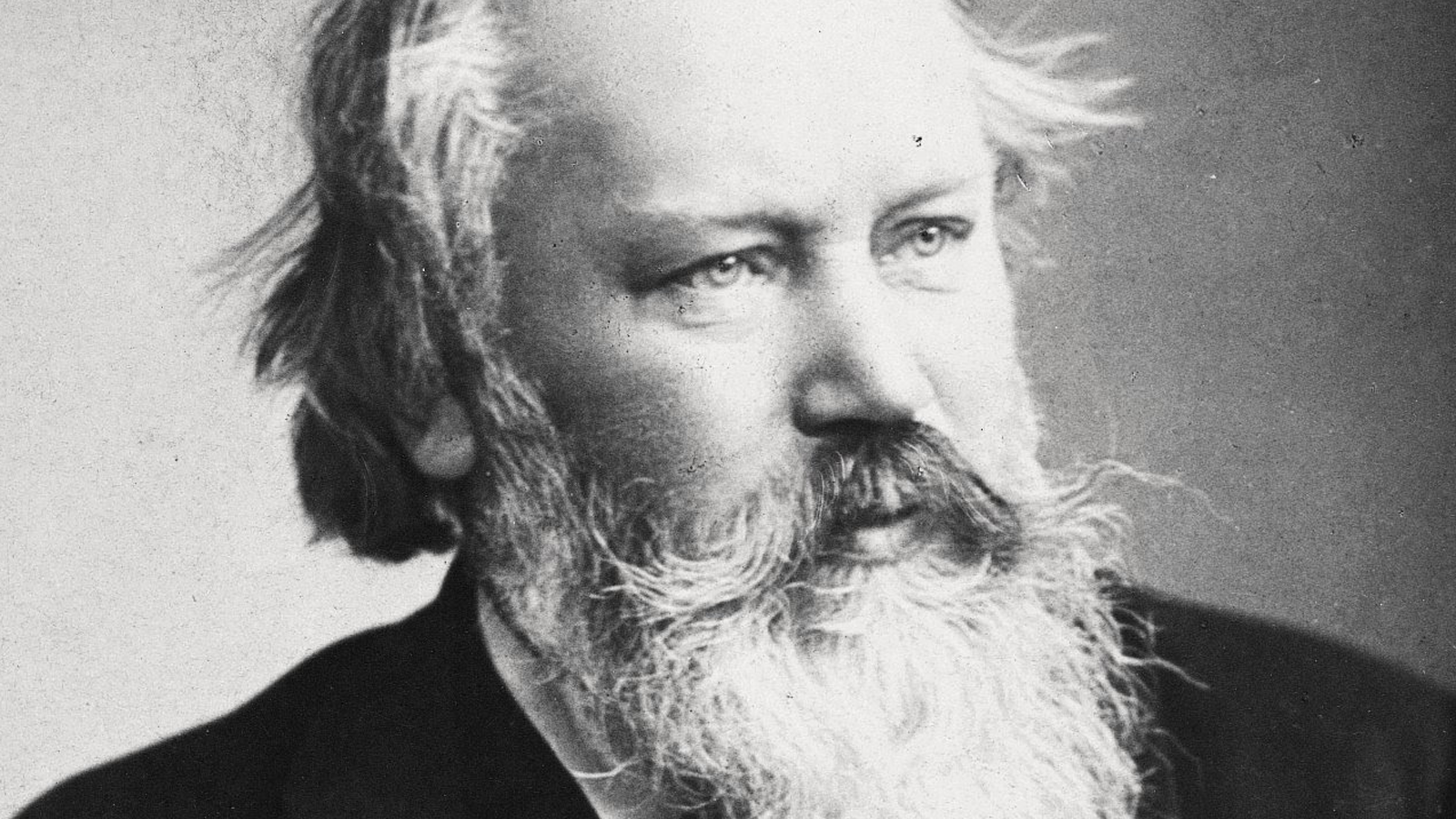
No. 17
Brahms: Ein Deutsches Requiem

On February 4th, 1865 Johannes Brahms received a telegram from his bother Fritz. It was the telegram every child never wants to read. “If you wish to see your mother before she dies,” the message read, “come home at once.” Brahms arrived too late; his mother had succumbed to a stroke. She had, in 1864, finally left Brahms’ father and was living with her unmarried daughter when she died. Brahms stayed for the funeral and then hurried back to Vienna. There, waiting for him, he found a letter his mother had written him, apparently aware she was dying. A few weeks later when a friend came to see him, he found Brahms at his piano, obsessively playing Bach’s Goldberg Variations with tears streaming down his face. Soon he was sending Clara Schumann sketches for a Requiem. But it was to be a requiem not based on the liturgical Latin mass. Instead he was drawing passages himself from the Lutheran Bible, passages in his native German.
A German Requiem is just that, a memorial composition written to a German text. It was a very personal composition. Brahms chose the words himself forsaking any reference to Jesus or resurrection. It is addressed not to the departed, but to those left behind. It starts “Blessed are they that mourn for they shall be comforted.” It was not only his mother’s death that inspired the Requiem, but Robert Schumann’s as well. The second movement of the Requiem that begins “All flesh is as the grass…” is based on music, a mournful sarabande, that was to be part of a symphony that Brahms was attempting to write in 1856 when he heard of Schumann’s suicide. He set aside the symphony, and as he wrote the Requiem more than a decade later, he was yet to finish any symphony at all, let alone the great one that Schumann had predicted that Brahms alone could write. That symphony still lay in the future. It may have been that with the death of his mother, Brahms finally felt he could let go of all the expectations, personal and public, that had been a weight on his shoulders. If part of the requiem was for Robert Schumann, the last section brings Brahms’ mother back into focus with the words “I will comfort you as one whom his mother comforts.”
Top 40 Countdown
A few years ago the listeners to WNED Classical told us what they thought a TOP 40 list of Classical pieces should be. Six hundred and twenty-two different pieces were put forward, and over nine hundred listeners participated. The result, The WNED Classical Top 40, was both startling and comforting. There were a number of surprises, Stravinsky and Copland made the list; Mendelssohn and Schumann did not! It was comforting to know that the two most popular composers were Beethoven and J.S. Bach. The biggest surprise of all was the piece that crowned the list as No. 1.